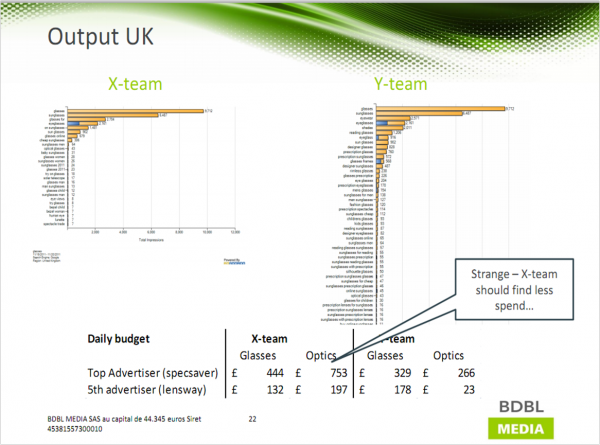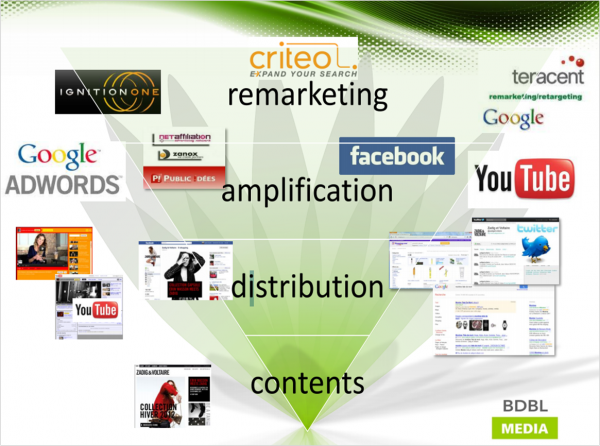International SEM: Important Lessons In Understanding The True Nature Of Keywords
Mindboggling. That’s the only word I can use to describe the fact that still today there are agencies and professionals who think that the right approach to generating keywords for international search marketing campaigns is to translate them. I have wasted so much of my time on this planet saying “Do Not Translate Your Keywords” […]
Mindboggling. That’s the only word I can use to describe the fact that still today there are agencies and professionals who think that the right approach to generating keywords for international search marketing campaigns is to translate them.
I have wasted so much of my time on this planet saying “Do Not Translate Your Keywords” and still every day I see or hear of examples of international SEM or SEO campaigns where doing that has been part of sowing the seeds of failure of that campaign.
A Case Study In “Localizing” Keywords
That word “Localizing” has become especially dangerous since the translation fraternity commandeered it! But for the purposes of this column, we simply mean choosing the keywords a local searcher would have chosen – we do not mean translating them.
To this end, Anders Hjorth of Paris-based BDBL Media presented a fascinating case study at the latest International Search Summit. Anders is a long standing speaker at SMX and is someone I’ve bumped into at numerous conferences around the globe.
He took a project which required the promotion of “Glasses” internationally (in fact, to 5 different countries) and he then compared the outputs of two different teams. Team X was a combination of Google Adwords Editor and Google Translate – in other words, automated translation. Team Y was a group of search marketers each of whom spoke the target language in question natively.
Some Surprising & Some Shocking Findings
You’ll not be surprised to learn that Team X, the results from the automated translation team, were not as good as those from the human Team Y. But nonetheless, there were some rather disturbing findings.
Firstly, Anders expected that the X Team, the automated translation approach, would result in a lower potential daily budget. It didn’t. In fact, it was substantially more than the “human” team.
This required some investigation — the result of which was that the automated approach was including a great many “keywords” which were incorrectly inflating the value or placing them in the wrong categories:
- Incorrect Translation
- Duplicated Keyword Skewing Categorization
- Inappropriate Keywords
- Weird And Wonderful
The Xtreme Consequences Of The X-Team
It’s easy to understand the idea that keywords were added which covered products which were outside the “scope” of the campaign as a result of incorrect translation. This online glasses retailer was not interested in selling “Solar Telescopes” for instance, but the phrase was included in the calculations for the daily budgets.
The carefully categorized seed keywords used for the translation, also no longer matched the categories of the translations — as a result, the X-team mixed up the categories completely which had the effect that keywords in different categories were competing against each other inflating the estimated cost of the campaign.
Further, “Human Eye” can only be described as inappropriate as can “Man Sunglasses”. But for weird and wonderful instances, look no further than “Bezel Child”, “Optician Optician”, “Eye Views” or “Telescope Mounts”.

The Automated Translation X Team Output For The UK Versus The Human Version
You can also see in the above graphic, a considerable difference in the length of the long tail, the development of which really requires human input and knowledge.
This over-inflation of the spends means that if you really went with this approach, you would be setting a larger budget and spending money more rapidly than you should, and you’d be getting much lower conversions. It’s the worst of both worlds.
It’s Worse… There Are Keywords Missing
The situation was actually much worse than just that the estimated spends had been over-inflated. Very important keywords, including examples such as “Spectacles” or “Shades” for the UK, were completely missing — as were many of the staple “Buy” keywords so significant for online retailers.
Ander’s case study was great proof, if proof is still needed, that translating keywords leads to disaster. Spend too high with lower potential conversions AND some key converting keywords not even in the mix.
Just Because It’s Google Doesn’t Make It Right
Google has been offering Google Adwords support within the Google Translator Toolkit to make it easier for advertisers since the end of 2009, but that doesn’t mean you should be using it just because it’s Google.
To be fair, on the Google blogpost they do offer a cautionary note, “Reaching foreign-language customers requires more than campaign localization.To attract international customers your landing pages should also be translated.”
Sorry Google, but this method of translating campaigns does not work the for the campaigns, never mind the landing pages!
The Digital Lotus
Anders also presented a curious marketing model to help understand the prioritization of advertising fields which he calls the “Digital Lotus”. His point is to start with the contents, “If you don’t have contents in the target language, then don’t talk to us,” he said.
The next level is the distribution of information virally, then Adwords and Facebook and then onto remarketing. See below.

The Digital Lotus
Forget The Principles, What’s The Bottom Line?
I’m sure some people think that I’ve spent the last decade ranting on about how you “Must not translate your keywords!” think that I’m a purist or that I’ve completely lost the plot.
Not so. Here we show that if you’re a client, translating keywords will cost you a considerable money or your job. And if you’re an agency, it can certainly cost you the client.
Opinions expressed in this article are those of the guest author and not necessarily Search Engine Land. Staff authors are listed here.
Related stories